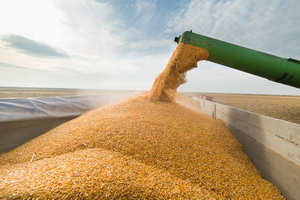
Global Impact of Not Planting Herbicide Tolerant Crops Due to Glyphosate Ban
December 13, 2017| |
 What will happen if herbicide tolerant crops are no longer available because glyphosate is banned? This questioned was answered by PG Economic's Graham Brookes, and Purdue University's Farzad Taheripour and Wallace Tyner in their research article published in GM Crops and Food.
What will happen if herbicide tolerant crops are no longer available because glyphosate is banned? This questioned was answered by PG Economic's Graham Brookes, and Purdue University's Farzad Taheripour and Wallace Tyner in their research article published in GM Crops and Food.
According to the paper, the initial impacts include loss of global farm income amounting to US$6.76 billion, and decrease in the production of soybean, corn, and canola, by around 18.6 million tons, 3.1 million tons and1.44 million tons, respectively. The environment would be directly affected as well, due to increase in the use of other herbicides with 8.2 million kg of active ingredient, and larger net negative environmental impact quotient of 12.4%. Furthermore, there will be an increase in carbon emissions due to fuel usage and reduced soil carbon sequestration, as if adding 11.77 million cars more on the roads.
Other effects on global welfare were also predicted using Computable General Equilibrium (CGE) model GTAP-BIO and found that most impacts are negative. World prices of all grains, oilseeds, and sugars are expected to rise. Land use area for crops is also expected to increase by 762,000 ha, which may further lead to deforestation, and increase in more carbon dioxide emissions.
Read more from the open-access article in GM Crops and Food.
| |
Biotech Updates is a weekly newsletter of ISAAA, a not-for-profit organization. It is distributed for free to over 22,000 subscribers worldwide to inform them about the key developments in biosciences, especially in biotechnology. Your support will help us in our mission to feed the world with knowledge. You can help by donating as little as $10.
-
See more articles:
-
News from Around the World
- FAO Calls for Urgent Actions to Reverse the Rise in Hunger
- Global Impact of Not Planting Herbicide Tolerant Crops Due to Glyphosate Ban
- Study Identifies Genetic Basis of Western Corn Rootworm Resistance
- New Technique to Help Plant Breeders Develop Drought Resistant Varieties Faster
- Australian OGTR Invites Comments for Field Trial of GM Perennial Ryegrass
- Max Planck Researchers Engineer Key Enzyme in Photosynthesis
-
Research Highlights
- DND1-Silencing in Potato and Tomato Confers Resistance to Botrytis cinerea
- ThPP1 Gene Enhances Alkali Stress Tolerance in Transgenic Rice
- Arabidopsis' AtGOLS1 Gene Negatively Regulates Seed Germination
-
Beyond Crop Biotech
- Salk Scientists Use Modified CRISPR System to Treat Diseases
-
Resources
- Sugarcane in Africa
- Biotech Crop and Traits Annual Updates
- ISAAA Blog: Clive James and ISAAA, Top Sources of Info on Biotech in the Philippines
-
Plant
- Indian Researchers Test CRISPR-Cas9 Genome Editing in Banana
- Lignin Reduction Observed in CRISPR-Edited Switchgrass
-
Read the latest: - Biotech Updates (January 14, 2026)
- Gene Editing Supplement (December 17, 2025)
- Gene Drive Supplement (February 22, 2023)
-
Subscribe to BU: - Share
- Tweet
